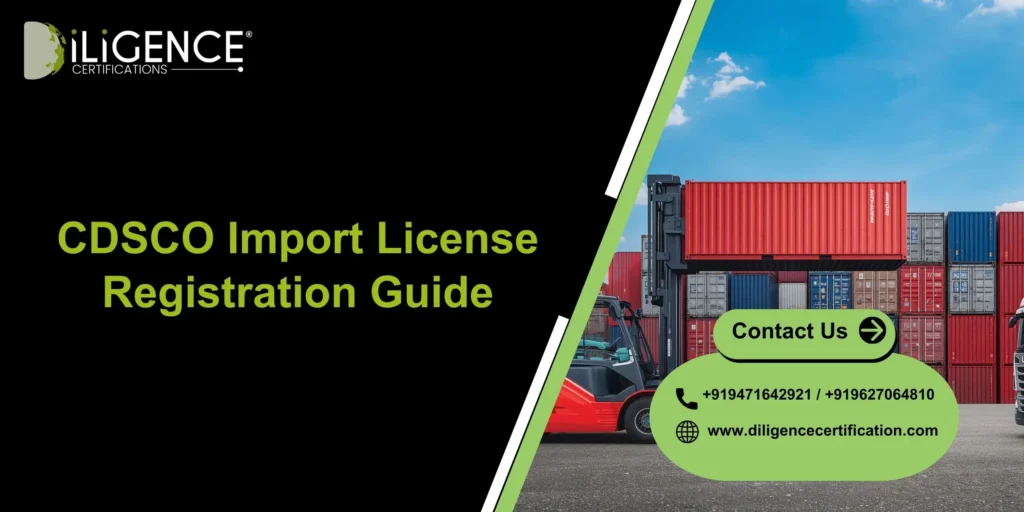- The difference between BIS vs ISI is really different in breadth: BIS is the certifying authority while ISI is a stamp of authenticity on a specific product.
- BIS represents the Bureau of Indian Standards, the authoritative organization responsible for establishing and overseeing product standards in India.
- ISI stands for Indian Standards Institute, the former name of BIS, which is now mainly known by the ISI mark on various products.
- BIS takes on the broader responsibility of establishing standards, managing certification programs, conducting testing, and ensuring quality control.
- ISI is not an organization but a certification that indicates a product has passed BIS evaluations and complies with Indian standards.
- BIS certification is the official approval procedure conducted by the Bureau.
- The ISI mark is a recognizable symbol on products that guarantees quality and safety to consumers.
- BIS functions as the regulatory body, whereas the ISI mark serves as its compliance evidence on products.
Introduction
In India’s market, product quality and safety are not consumer choices, they are obligations. With rapid industrial growth and an increasing amount of imports, the Indian Government has responded with tightening regulations for the products available for purchase in the country, making sure they are safe, reliable, and of a consistent quality.
BIS and ISI are two of the expressions that confuse the most manufacturers, importers and even consumers, because most people think they are same, however, they are interdependent and different. It is key for any business which plans to comply with Indian standards and any consumer that wants guarantees of quality to understand then differences between BIS vs ISI.
This blog will give you a detailed analysis of BIS vs ISI, how they operate, what makes them different, and why both are important within the quality system in India.
What is BIS?

Bureau of Indian Standards (BIS) – India’s National Certification Authority
The Bureau of Indian Standards (BIS) is the national standards body of India, functioning under the Ministry of Consumer Affairs, Food and Public Distribution. It develops standards, conducts quality control through its certification, and operates a certification mechanism, both for domestic products and products from overseas.
Key Functions of BIS:
- Granting ISI Marks for products
- Operating Compulsory Registration Scheme (CRS) for electronics
- Approving FMCS for foreign manufacturers
- Providing Hallmarking for gold and jewellery
- Ensuring standardization and safety across industries
BIS is like RBI in finance — the final authority that ensures everything meets the law.
What is ISI Certification?
ISI is abbreviated for the Indian Standards Institute — that was the one-time name of BIS. While BIS is the organization, ISI is widely accepted to be known as the “ISI Mark.“
The ISI mark is a certification symbol issued by BIS for specific products that conform to Indian Standards (IS codes).
ISI Mark Certification – The Trusted Symbol of Indian Quality

- It’s used on products ranging from electrical appliances to cement, PVC pipes to LPG cylinders.
- ISI Mark It is one of the oldest and popular certifications in India.
- The ISI Mark is indicative of a product being in conformance with a particular Indian Standard (IS) provided and issued by BIS.
- Consumers become accustomed to recognizing ISI with safety and reliability.
Products under ISI Certification
There are thousands of products that require the ISI Mark certification, but also products relevant to safety, health, performance. A few examples include:
- Electrical goods including switches, heaters, cables
- Kitchen utensils including pressure cookers, LPG cylinders
- Cement and Steel products
- Packaged drinking water
- Helmets and protective equipment.
If you’re buying a pressure cooker, a fan, or a helmet — look for the ISI mark. It tells you the product meets BIS-defined standards like IS 302 or IS 4151.
BIS vs ISI – What’s the Difference?
Core Difference Between BIS and ISI
| Basis | BIS Certification | ISI Certification |
| Full Form | Bureau of Indian Standards | Indian Standards Institute |
| Nature | Regulatory body | Certification mark |
| Role | Creates & enforces Indian Standards | Symbol used on products approved by BIS |
| Used For | Certification, standardisation, quality audits | Product packaging and labeling |
| Authority | Ministry of Consumer Affairs | Operates under BIS |
| Scope | Wide (includes Hallmarking, CRS, FMCS, ISI, etc.) | Narrow (product-specific) |
“BIS is the authority, ISI is just a stamp of its approval.” – Diligence Certifications
Types of BIS Certification Schemes
1. ISI Mark Scheme
Mandatory for over 350+ products (cement, electronics, pressure cookers, etc.)
2. Compulsory Registration Scheme (CRS)
Applies to IT and electronic items (LED lights, mobile chargers, laptops)
3. FMCS (Foreign Manufacturers Certification Scheme)
Applies to overseas brands seeking ISI mark approval
4. Hallmarking
For gold, silver, and jewellery items
5. ECO Mark
For environmentally safe products
When Is BIS Certification Mandatory?
Products That Require BIS Certification or ISI Mark

Here are some categories that mandatorily require BIS Certification:
Electricals & Electronics
- LED bulbs, Inverters (IS 16221)
- Mobile chargers, Power banks
Building Materials
- Cement (IS 1489)
- Steel bars, Bricks
Automotive & Safety Gear
- Helmets (IS 4151)
- Automotive tyres
Consumer Goods
- Pressure cookers (IS 2347)
- Gas stoves, water bottles
Products That Require ISI Mark & BIS Certification
Here’s a more expanded product list with IS codes for clarity:
| Product Category | Example Products | IS Code |
| Electrical | Switches, Cables, Inverters | IS 694, IS 16221 |
| Electronics | LED TV, Laptops, Routers | IS 616, IS 13252 (CRS) |
| Construction | Cement, Steel Bars | IS 269, IS 1786 |
| Automotive | Helmets, Tyres, Brake Linings | IS 4151, IS 15627 |
| Home Appliances | Mixer, Pressure Cooker | IS 4250, IS 2347 |
| Kitchenware | Gas stove, Utensils | IS 4246, IS 14757 |
| Food Grade | Packaged water, Milk powder | IS 14543, IS 1165 |
Documents & Eligibility for BIS Certification
In order to get a Bureau of Indian Standards (BIS) Certification you need proper eligibility and documents. This regulation ensures that only genuine manufacturers and businesses are allowed to use the mark of the ISI.
Eligibility for BIS Certification
- Manufacturer Only – BIS certification is given to the manufacturer only, not the trader, importer or distributor.
- Manufacturing setup – The factory shall have the manufacturing facilities, quality control equipment and testing arrangements in accordance with Indian Standards.
- Product Must Conform to Indian Standards (IS Code) – The product should match the specifications of the applicable BIS standard.
- Factory Location – Both Indian and foreign manufacturers are eligible, but foreign manufacturers need an Authorized Indian Representative (AIR).
- Quality System – The applicant must have in-house quality checks and testing arrangements to maintain consistency.
Documents Required for BIS Certification
The exact documents set may depend on the product category, however you will typically need:
- Business Registration Documents
- Certificate of Incorporation / Partnership Deed / MSME Certificate
- GST Registration Certificate
- Import Export Code (if applicable)
- Certificate of Incorporation / Partnership Deed / MSME Certificate
- Factory Documents
- Address proof of manufacturing unit
- Factory license issued by local authority
- Details of manufacturing machinery and production process
- Address proof of manufacturing unit
- Quality & Testing Documents
- In-house lab testing reports or third-party lab test results from BIS-recognized labs
- Calibration certificates for equipment
- Process flow chart of manufacturing and quality checks
- In-house lab testing reports or third-party lab test results from BIS-recognized labs
- Authorized Signatory Documents
- Identity and address proof of company directors/partners
- Authorization letter if the application is being filed through an agent/representative
- Identity and address proof of company directors/partners
- Product-Specific Documents
- Technical details of the product (raw materials used, design, drawings, etc.)
- Indian Standard (IS Code) applicable to the product
- Samples for testing (to be submitted to BIS labs)
- Technical details of the product (raw materials used, design, drawings, etc.)
Who Cannot Apply for BIS Certification?
Despite wide eligibility, some entities are not permitted to apply for BIS certification:
| Not Eligible | Why |
| Traders or Distributors | No control over manufacturing process |
| E-commerce Sellers | Unless they also own the brand & facility |
| Importers (without AIR) | BIS requires legal presence in India for FMCS |
| Assemblers | Must be full-scale manufacturers, not assemblers without quality testing infrastructure |
| Resellers using private labels | Cannot apply unless manufacturing under their own facility and name |
Industry Examples for BIS Certification Eligibility
| Applicant Type | Eligibility | Notes |
| Indian Startup (LED bulbs) | Eligible under CRS | Must apply under IS 16102 |
| Dubai-based Cement Manufacturer | Eligible under FMCS | Requires Indian agent + audit |
| Amazon Seller (private label cooker) | Not eligible unless owns factory | Must partner with OEM with BIS |
| Indian Helmet Manufacturer | Eligible under ISI | Apply for IS 4151 |
| Trader importing mobile chargers | Not eligible | Manufacturer must apply under CRS |
Process of Getting BIS Certificate
Step-by-Step BIS Certification Process (ISI Mark Scheme)
1. Determine IS Code (e.g., IS 302 for electric irons)
2. Apply for BIS license via BIS portal
3. Product Testing in BIS-approved lab
4. Submit documents, fees, and sample results
5. BIS Factory Audit
6. Grant of ISI License
7. Post-certification surveillance every 6–12 months

BIS vs ISI for Importers and Exporters
Compliance Impact on Global Trade
If you’re an importer or Amazon seller, understanding BIS vs ISI is critical.
- Without BIS approval, customs clearance is denied.
- ISI without valid BIS license = legal violation.
- FMCS mandatory for foreign exporters sending BIS-covered goods to India.
Benefits of BIS Certification
Whether you are a manufacturer, importer or exporter, getting BIS certification is more than a simple compliance box to tick, it is an investment in credibility, safety, and access to the market.
Here are some of the key benefits of BIS Certification:
1. Legal Compliance & no Penalties
- BIS is mandatory for some products; only products that have compliance to BIS standards and have been certified can be sold. Uncertified goods may be fined, seized, or imprisoned as per BIS Act, 2016.
2. Greater Market Access
- Certified products have access to government tenders, acceptance for public procurement and e-marketing sites like Amazon and Flipkart
3. Increased Brand Trust
- Consumers in India identify ISI mark and BIS Mark as quality marks and safety.
4. Further Export Opportunities
- Indian export establishments can face less regulatory and trade inertia for products related to BIS, GCC, Africa and SAARC nations.
5. Reduced Product Returns and Complaints
- With BIS-mandated product testing, your defect rate drops drastically — saving cost and brand reputation.
6. Insurance and Liability Advantage
- Insurers favour certified products. In case of damage or fire, non-BIS-certified products often void claims.
7. Support During Product Recalls or Audits
- BIS-certified companies receive better legal and technical support during investigations or quality-related litigation.
Get the License
Manufacturers often misuse the ISI mark without understanding that each product needs an individual license under a specific IS code.
Using the ISI symbol without BIS approval is a punishable offence under Section 17 of BIS Act 2016 — with imprisonment up to two years and/or a ₹5 lakh fine.
Why Choose Diligence Certifications?
- Specialist knowledge in BIS and ISI – Our staff has an extensive understanding of Indian Standards, BIS processes, and ISI mark requirements assuring you are aptly guided at every step of the way.
- Complete services – We provide total support from finding the applicable standards, to preparing documentation, coordinating product testing, and providing the certification – we do it all for you!
- Cost & time saving – By letting Diligence Certifications do the consultancy for you, you will save time and money and avoid unwanted delays and rejections too.
- Trust from manufacturers and vendors – We work with both Indian and international companies for BIS certifications and ISI mark approvals to enable seamless entry in the Indian market.
- Compliance assurance – We ensure that your products not only gain certification but remain compliant with the BIS ongoing requirements.
- Tailored consulting – No two products or businesses are the same, we deliver tailored consulting strategies instead of singular standards approaches.
- With Diligence Certifications, you will have a trusted partner to simplify and provide transparency to the often time-consuming and arduous process of BIS and ISI certification.
Conclusion:
In conclusion, BIS vs ISI are closely connected but not the same. BIS is the national authority that develops and regulates Indian Standards, while the ISI mark is the symbol of certification that assures a product meets those standards. Simply put—BIS is the body, ISI is the mark. Both play a vital role in ensuring product safety, reliability, and consumer trust in the Indian market.
Frequently Asked Questions
Difference Between BIS and ISI?
BIS is the certification body, and ISI is the mark of quality awarded by BIS. BIS certifies the product and ISI is a mark or form of proof to the consumer that the product meets Indian Standards.
Is BIS certification a requirement ?
Yes, for over 350+ products like electronics, cement, and helmets. If your product is listed under BIS Compulsory Certification, certification is legally required.
Who can apply for BIS certification?
Only manufacturers can apply. Indian manufacturers must own a factory; foreign brands must apply through the FMCS scheme with an Indian representative.
How do I get the ISI mark?
First, apply for BIS certification. After passing testing and factory audit, BIS grants you a license — only then can you legally use the ISI mark.
Can foreign companies get BIS certificate?
Yes. They must apply under FMCS, appoint an Indian representative, and pass BIS testing and overseas factory audits to get the ISI mark.
How to verify a BIS-certified product?
Visit manakonline.bis.gov.in, search by license number or IS code, and confirm the product’s active BIS certificate status.
What if I use the ISI marking without a BIS license?
It is illegal under the BIS Act, 2016. You may be subject to fines as high as ₹5 lakh, cancellation of your license, even jail time.
How much does BIS certificate cost?
Costs start at ₹40,000 for Indian manufacturers. FMCS applications may incur higher costs due to the obligation for audit, testing, and fees for Indian representation.
How long is BIS certificate valid?
BIS licenses are granted for 2 years, which can be renewed for up to 5 years as long as the BSI is still up to standard.
What are the penalties for not complying?
Penalties can include seizure of the products, fines, cancellation of your license, some forms of legal action. BSI may also conduct surprise inspections to enforce compliance.








 BIS Certification
BIS Certification
 CDSCO
CDSCO
 CPCB
CPCB
 LMPC
LMPC
 WPC Approval
WPC Approval
 Global Approvals
Global Approvals
 TEC
TEC
 ARAI
ARAI
 BEE
BEE
 ISO Certification
ISO Certification
 DGCA Certification
DGCA Certification
 NOC For Steel
NOC For Steel



















 Business Registration
Business Registration















 Legal Services
Legal Services
 Trademark Registration
Trademark Registration
 Copyright Registration
Copyright Registration
 Patent Registration
Patent Registration

















































